Affiliate links on Android Authority may earn us a commission. Learn more.
10 best chemistry apps for Android
Published onFebruary 2, 2022
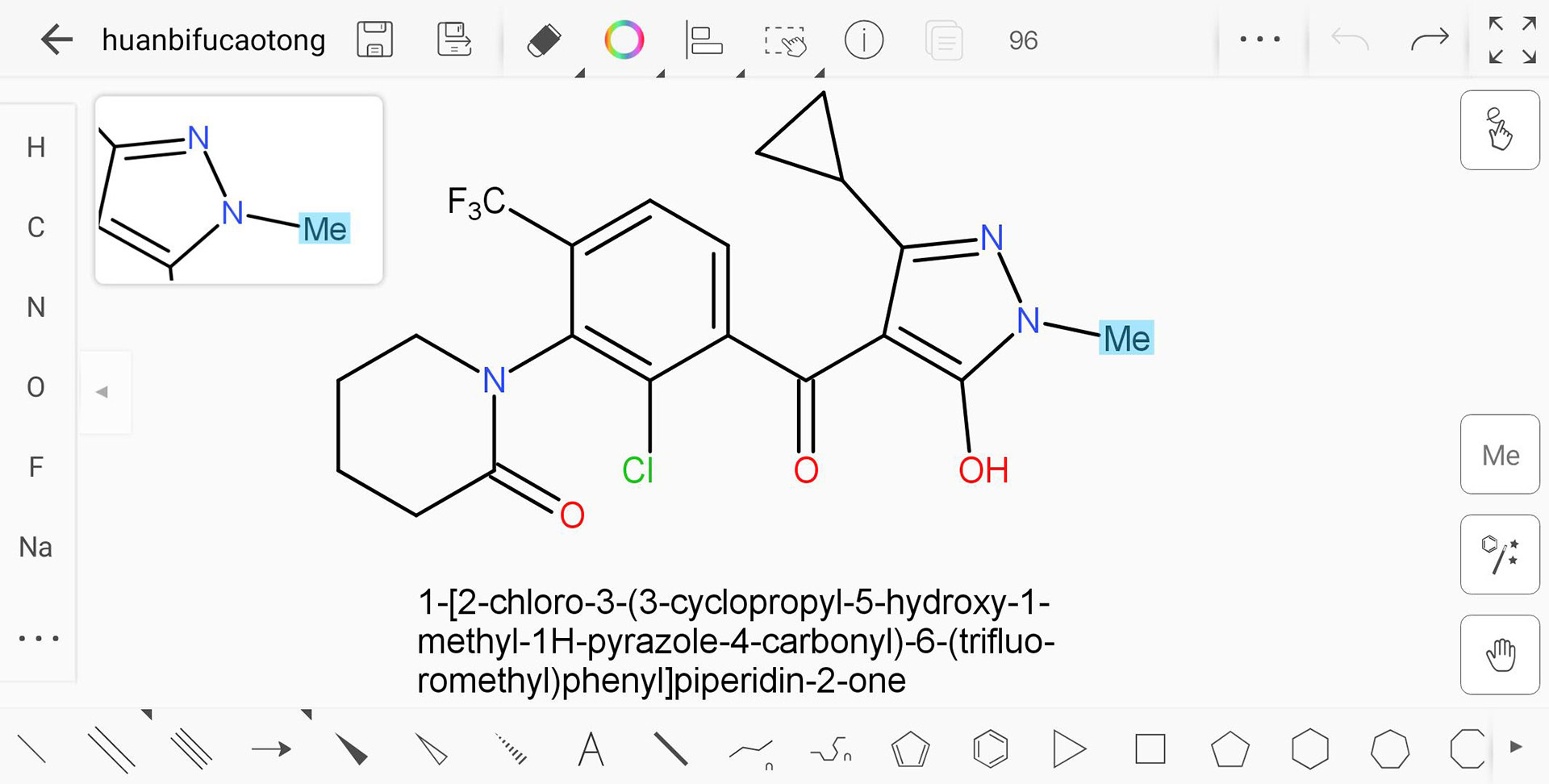
Chemistry is the science of matter, and it’s responsible for some of the world’s greatest things. It’s how we build medicine and also how we build basically all things made out of plastic. Most of the nitrogen we consume comes from the Haber-Bosch process, an important thing you probably never heard of before. In any case, chemistry is interesting and fun, with a lot of information out there. Here are some chemistry apps to help you learn and enjoy chemistry more.
The best chemistry apps for Android
Amazon Kindle
Price: Free / Book prices vary

Amazon Kindle is a bit of a lame pick, but it’s actually quite good for chemistry fans. There are thousands upon thousands of books out there about the topic. You pay for the book and read it straight from your smartphone. Just about everybody is familiar with how Kindle works, so I’ll spare you the boring details.
Suffice it to say that reading about chemistry is still one of the better ways to learn about it. The app is free and it syncs between your devices. Book prices can vary heavily depending on whether you’re buying a textbook or something else.
AnkiDroid Flashcards
Price: Free
Flashcards are another good way to learn chemistry stuff. You use an app like this one and create flashcards with whatever information you want to memorize. From there, you study with the flashcards. AnkiDroid is about as good as it gets in this space. It’s free, it works cross-platform, it’s open-source, and it even comes with premade decks of cards.
There isn’t much else to say about it. It works well and it has enough organizational features to help you keep your information in order.
Inoreader
Price: Free / $6.99 per month / Varies

Science changes all the time and it’s important to stay up to date with current trends. Apps like Inoreader or Feedly can help with that. These are RSS-style newsreaders that let you follow whatever blogs, journals, or websites that you want. From there, you simply open the app, check out the new articles, and read what you want.
Inoreader is the slightly better and more stable option right now. You can add feeds, save articles to third-party sites like Dropbox, and the pro version offers some additional features as well. It works a lot better than most other news aggregators.
KingDraw
Price: Free
KingDraw is where we start to see some more hardcore chemistry apps. The app lets you sketch molecules and chemical reactions. It’s technically classified as a formula editor. It features 3D modeling and the ability to create within the app — and it saves in a variety of file formats that are compatible with other formula editors.
Honestly, we can’t believe this app is free. This feels like it should cost something given how most other formula editors like ChemDraw can cost quite a bit. It’s not without its flaws, but most of them are simple bugs and nothing serious.
Lab.Hacks
Price: Free / Optional donation
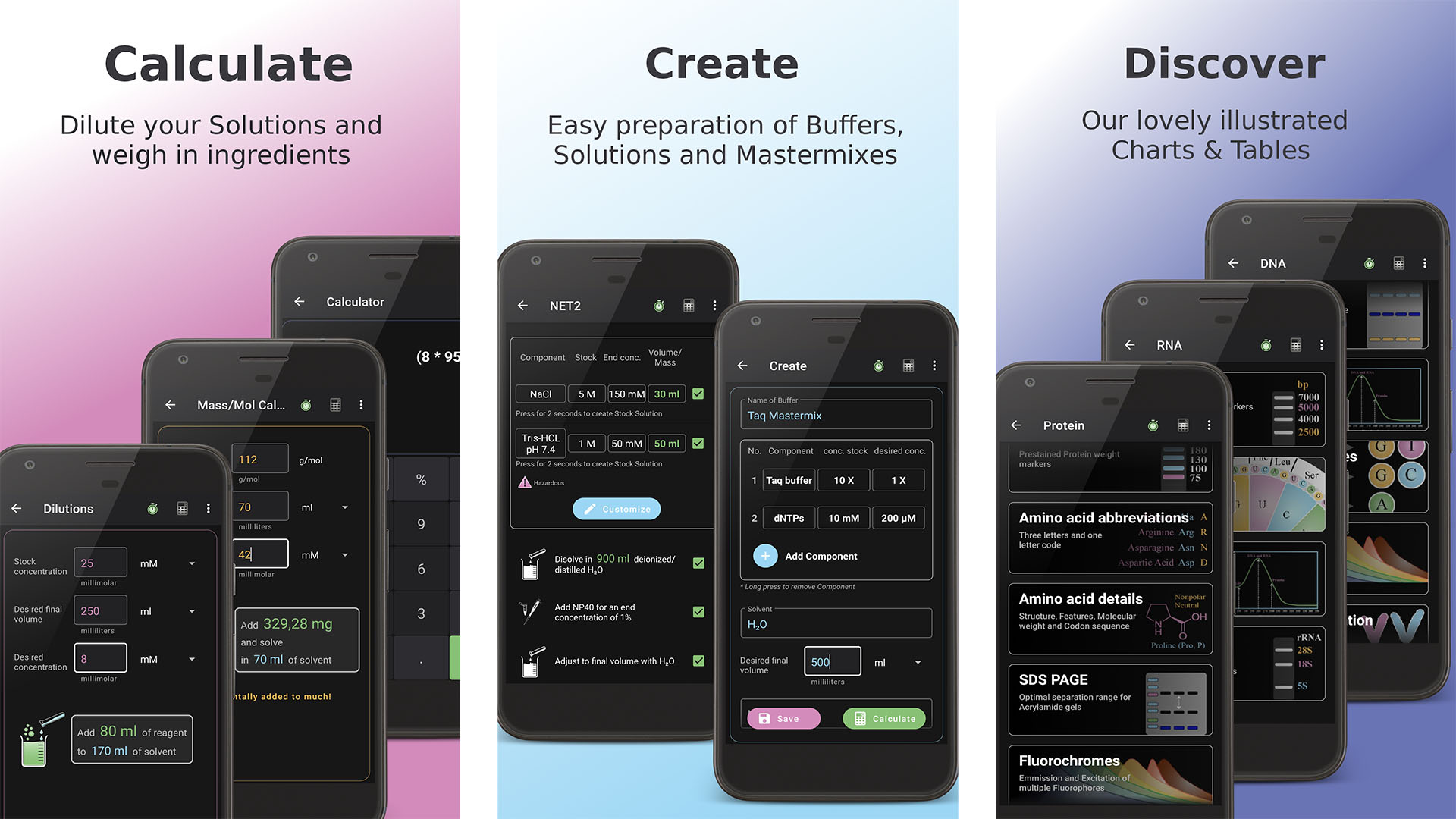
Lab.Hacks is a chemistry planner of sorts. You can input your methods along with precise measurements for each chemical you use. The app also has resources for your reference along with tools to monitor your experiments. It caters a bit more to the beginner or amateur chemist, but some users say they do use it in a professional work environment, so it is good enough for that.
The app is free with optional donations if you choose to support the developer. The donation does remove ads, though, so it’s also technically paying for the premium version of the app.
Molecolarium
Price: Free / $0.99
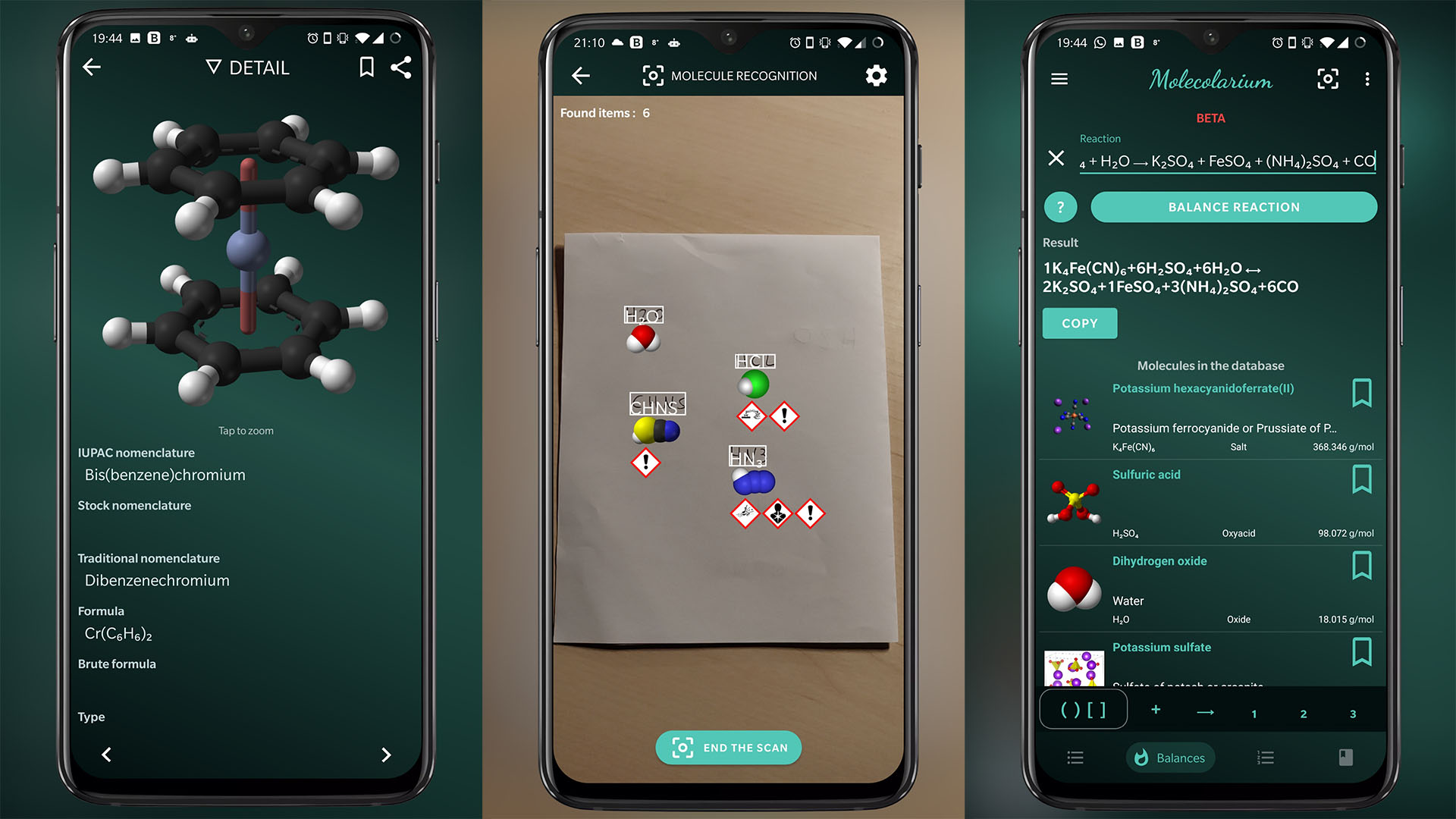
Molecolarium is the wild card pick on this list. It’s not the most popular app, but it has a lot of promise. It houses a collection of 2,100 inorganic and organic molecules. The information was apparently revised and verified by IUPAC — and that’s something you don’t get in every app.
The pro version of the app is pretty cheap, so this is yet another geat resource for amateur and possibly even professional chemists, along with students. There is just a boatload of information here and it’s faster than Googling it most of the time.
Organic Chemistry Practice
Price: Free
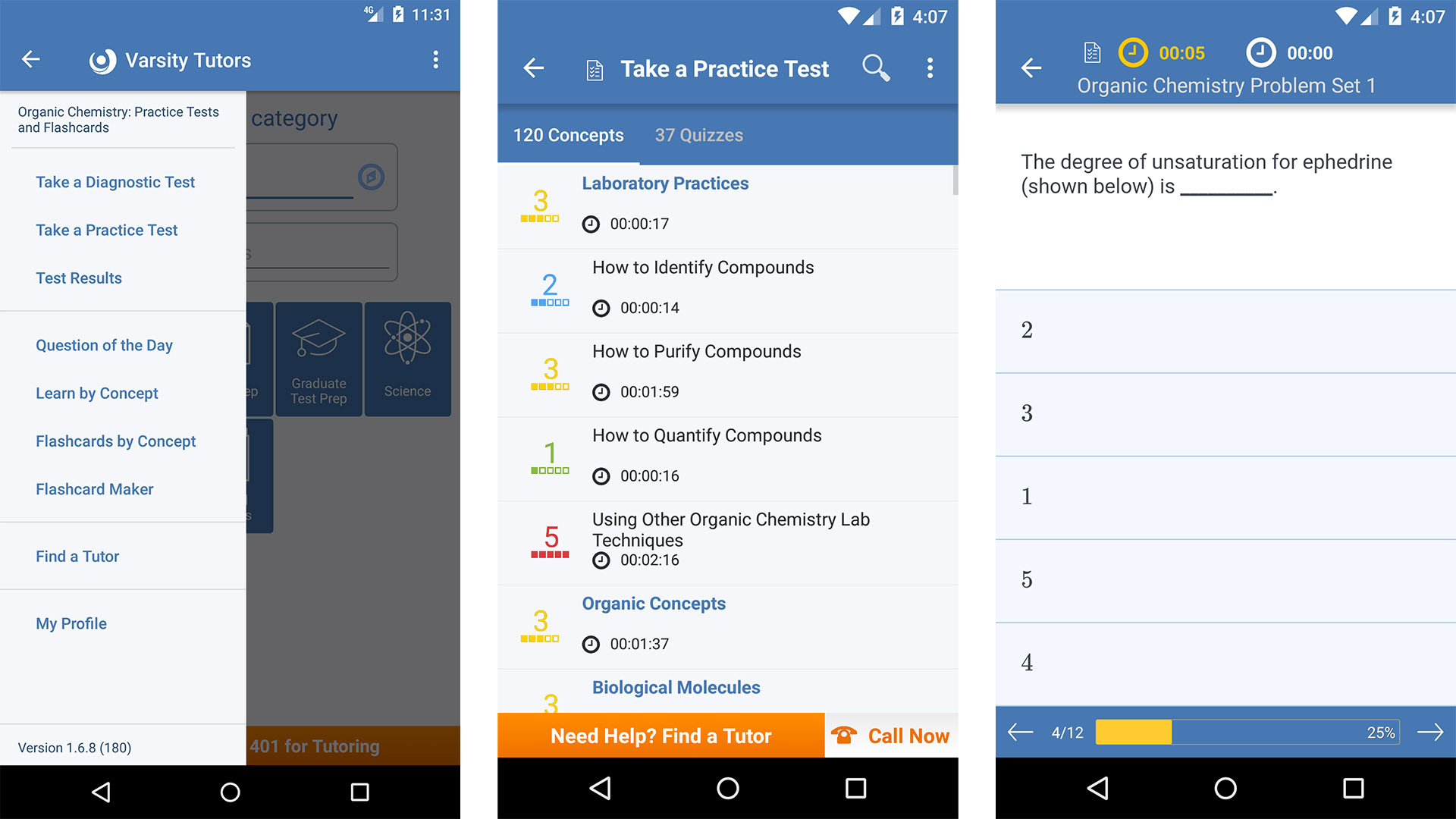
Organic Chemistry Practice is a decent tool for organic chemistry students or amateurs looking to round out their knowledge. It’s a tutoring app that helps you grasp the basic concepts of organic chemistry through the use of tests, questions of the day, flashcards, and other means.
The app is entirely free making it easy to recommend to folks. It does lean toward beginners, though, so those already well versed in the subject can probably skip this one unless they want to test themselves to see if they really know their stuff.
QuickChem
Price: Free / $1.99
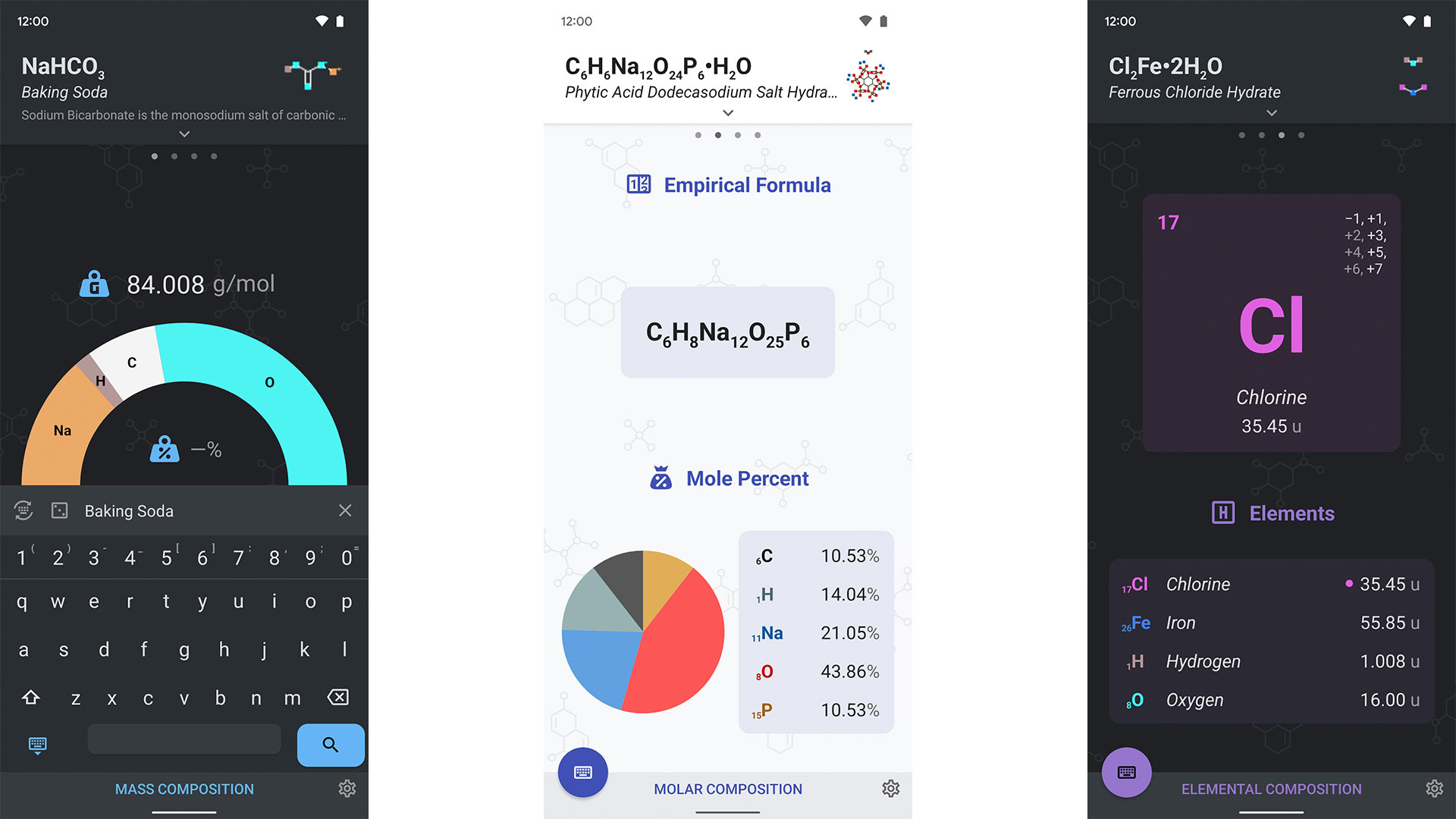
QuickChem is a chemistry calculator and one of the better ones available. It helps you calculate a bunch of stuff like molar mass, water solubility, and more. You can also look up chemicals, see their formulas, and find more information. Some of the information is a little basic, but there are many skill levels, so this app is still useful.
The pro version removes ads and adds a few extra features. The app isn’t perfect, but the developer seems intent on improving it over time. It could wind up being an excellent resource, especially for beginners and students.
TED
Price: Free

TED is a decent spot to learn more about chemistry. It features TED Talks from a ton of different people, and some of those people are chemists. There is no specific feature that makes it particularly great for chemists. However, according to the official website, there are over 200 presentations that have to do with chemistry.
TED is free to use and includes subtitles in over 100 languages — and you can download talks for offline playback. Some of the chemistry talks are quite good.
YouTube
Price: Free / $12.99 per month
YouTube is a surprisingly excellent resource for chemistry fans. For starters, some of the prominent chemistry YouTubers like NileRed are genuinely entertaining, but there is also a lot of stuff to learn. You’ll mostly find amateur chemists doing reactions or testing various things. For example, NurdRage came up with a method for making sodium metal without electrolysis and only using domestically available chemicals.
You all know how YouTube works. The premium version is $12.99 per month and lets you download stuff for offline use and watch without ads. It’s worth it if you watch a lot of YouTube, but otherwise, the free version works for most folks.
If we missed any great chemistry apps for Android, tell us about them in the comments. You can also click here to check out our latest Android app and game lists.